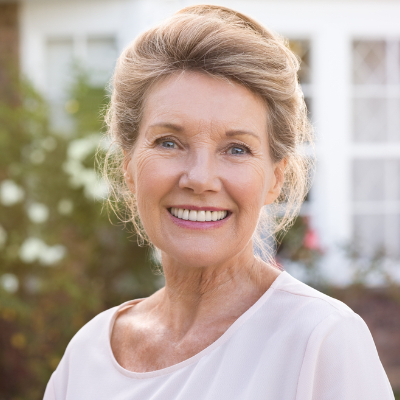Caregiving Blog: 10 Tips for Seniors to Create a Positive Attitude Toward Aging and Health
 When asked how old they feel specific to health and aging, many senior citizens report a number lower than their actual age. This self report confirms a positive attitude and belief that good health can delay the negative effects of old age. Other seniors report feeling older than their age. The term describing “how old am I” is called subjective age. For most of us, subjective age means that we feel younger than our chronological age. The self-report that we feel younger than our age poses long lasting benefits decades into the future. This feeling is especially important for seniors who may feel that they are aging and that health declines are inevitable regardless of actions to counteract poor health and old age.
When asked how old they feel specific to health and aging, many senior citizens report a number lower than their actual age. This self report confirms a positive attitude and belief that good health can delay the negative effects of old age. Other seniors report feeling older than their age. The term describing “how old am I” is called subjective age. For most of us, subjective age means that we feel younger than our chronological age. The self-report that we feel younger than our age poses long lasting benefits decades into the future. This feeling is especially important for seniors who may feel that they are aging and that health declines are inevitable regardless of actions to counteract poor health and old age.
Attitudes Toward Aging Are Important
Our own attitudes toward old age predicts our future as seniors and our eventual need for caregiving or providing caregiver support for a loved one who may refuse care. Good health for seniors is a major predictor of daily well-being. Other factors like a having sense of control, participating in social activities and adapting positively to change are very important.
Embracing New Behaviors and Habits Provides Positive Results
Below are 10 tips for all to consider as we move through life, become a senior, and hope to preserve health and well-being into old age.
- Become passionate about health and aging. Put forth a daily effort to eat healthy and to exercise. Yes—easier said than done. Improving your health requires self-discipline and the belief in the positive benefit of the results. Believe, act daily, and you will achieve your goals. Take before and after pictures so that you can see the difference in your appearance.
- Avoid comparing yourself to other seniors who may have limiting health diagnoses. Compete with yourself. See the goal you want to reach and cross the goal off your list. Work with your physician to determine ways to improve your health. Avoid relying on prescription medications if at all possible. If there are other ways to resolve the health diagnosis like exercise and diet try these.
- Maintain and create new social connections with persons younger in age by 10 years or more. Great benefit exists for seniors who participate in physical, mental, and social activities with the younger generations. Become and remain young at heart. Avoid aging before your time. Laugh. Enjoy life.
- Maintain physical strength, balance and flexibility. Avoid the possibility of a fall. Falls result in self-limiting behaviors due to fear of falling again. Isolation is unhealthy. Limiting physical activity leads to increased health risks. Many seniors who fall, age quickly. They leave their homes to live in care communities or nursing homes.
- Become the master of your life. Remain confident about your ability to reach goals. Eliminate aging or health concerns as reasons you can’t reach a goal. Consider new goals as challenges instead of threats. Say yes instead of no to invitations to join in group activities. Isolation is bad for the mind, body, and soul. Be practical but fearless.
- Adapt to life changes that occur as the result of aging. After retirement, find a new hobby. Volunteer. Offer your skills to others. The feeling of being needed provides purpose and a reason to get out of bed every day that is important for senior health. Activities that keep our mind active help avoid a diagnosis of memory loss or Alzheimer’s Disease that can drastically change a marriage or other relationship
- Embrace thoughts of hopefulness versus hopelessness. Persons who are hopeful and positive experience better mental health, well-being, happiness, and life satisfaction. Embrace the good in life; eliminate the negative. Many seniors fall into the trap of negativity and hopelessness and don’t know how to climb out of this thought pattern.
- Increase life engagement by participating in a new activity. Attend a cultural event, a sporting event, classes or lectures, try out an artistic project like painting, learn to play a musical instrument, learn a foreign language, play board games, cards, or put together a puzzle. Engaging in life adds interest to the lives of seniors.
- Take your spouse or partner with you along the journey. Marital satisfaction results from doing things together. Taking an interest in health will decrease the likelihood that one of you will become a full-time caregiver. Avoid being a burden to your children. Thank your children for the assistance they provide. Caregiving, while an accepted role, poses health and well-being risks for the caregiver.
- Start and achieve small goals to give yourself confidence. Work up to bigger and more lofty goals. There are no limitations to our minds and what we can accomplish except those limitations and fears we acknowledge and allow to hold us back.
Choose to Live a More Fulfilling Life as a Senior
Seniors have the ability and opportunity to leave fuller lives in retirement than ever before. As younger adults we create our path in life. We create the quality of health we will have when older. Aging will happen to all of us. Good or poor health will happen to all of us. We have the opportunity to choose every day the actions we will take to ensure that our lives as seniors will be happy, healthy, and fulfilling. Start today to have a positive attitude about aging and the great things yet to be accomplished. Write up that bucket list and make plans to check off every dream.
For tips about caregiving for loved ones, check out my book The Caregiving Trap: Solutions for Life’s Unexpected Changes.






Trackbacks/Pingbacks